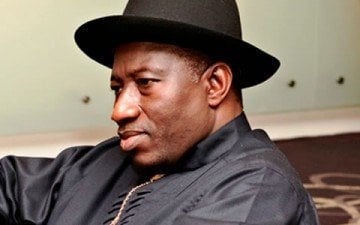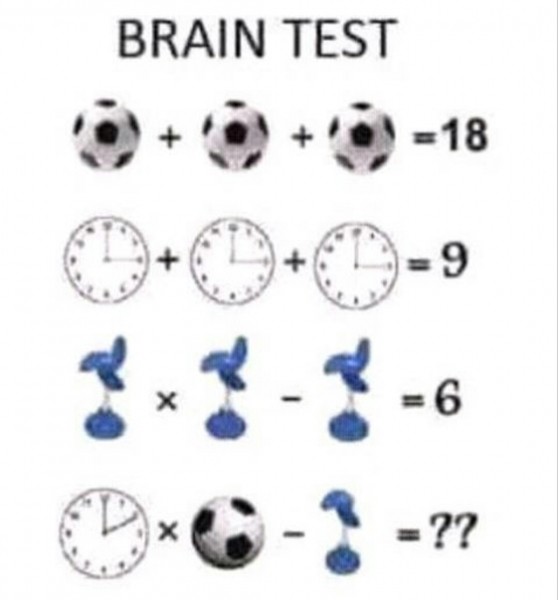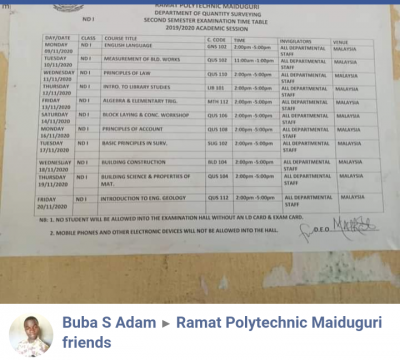
AFTER polytechnic students have lost an entire academic session to the 171 day strike embarked upon by the Academic Staff Union of Polytechnics, ASUP, and Colleges of Education have been shut for nearly four months, President Goodluck Jonathan is reported to have intervened into the situation. While some stakeholders observe this development with caution, some others say it is a little too late.
BY LAJU ARENYEKA
WE have not met the President directly —ASUP Boss
The ASUP President, Mr. Chibuzor Asomugha, speaking to Vanguard Learning said that the union has not met directly with the President on the matter. He said: “We have not been directly involved with the President at any of the meetings. All we know about the President’s intervention is the much we have been able to glean from second person reports. We were made to understand that consequent on the Nigerian Labour Congress’,
NLC, letter to the President, His Excellency had directed the Minister of Labour to take up the matter with a view to finally resolving the outstanding dispute. That intervention led to a meeting between the Minister of Labour, ASUP and Colleges of Education Academic Staff Unions, COEASU, with the NLC President in attendance.
Similar Posts:
Our understanding is that the positions taken at that meeting would be taken for the President’s assent as a prelude to implementation. We were also made to understand that there was another meeting at which the President asked the Secretary General of the Federation and the Supervising Minister of Education to execute certain specific actions that will hopefully, address the outstanding issues in dispute.”
No evidence of President’s intervention —COEASU Boss
“Where is the evidence?” was the response given by the COEASU Chairman, Mr. Asagha Okoro when our reporter asked him about the President’s intervention.
When the Government wanted to intervene into the ASUU situation, he called ASUU and the Federal Ministry of Education to a meeting. But in the case of Polytechnics and Colleges of Education, it is just being rumoured by people. There has been no call for any meeting not even from the minister of education. Colleges of education have been on strike for nearly four months, it is such a shame that nothing has been done.
We cannot keep paying lip service and call ourselves an egalitarian society, when the under privileged are neglected. It is because the elite in society have no stake in Colleges of Education and Polytechnics, that is why this issue has gone on for so long. We have decided that if nothing is done soon, we will mobilize lecturers, students, market women and society leaders to picket the ministries of education, finance and labour in Abuja.”
It is not an exciting development —ASUP Zone D
Meanwhile, the coordinator of ASUP Zone D, Mr. Anderson Ezeibe said that the president’s intervention is long overdue. “It is not really an exciting development,” he said, “apart from a short suspension, this strike has been on since last April. The President’s intervention is long overdue. However, it is better late than never. It took the President’s intervention to resolve the situation when the Academic Staff Union of Universities, ASUU, was on strike.
Hopefully, he will also be able to resolve the situation with ASUP. This strike has not in any way benefitted anyone. We were giving the government warnings about the situation at hand two years before we embarked on the strike. Any responsible government should react quickly when trade unions raised issues, instead of waiting for the unions to go on strike for a long time.”
End the HND-BSc dichotomy once and for all —NAPS
On its part, the National Association of Polytechnic Students believes that the only reward that can be given to Poly students after such a long strike, is to put an end to the dichotomy between the Higher National Diploma, HND and the Bachelors Degree.
The Senate President of the Association, Mr. Adeyemi Lukman said: “The students are the ones at a loss. What we are most concerned about is the disparity between the HND and B.Sc certificates. Even if the strike is called off, if nothing is done about the situation, it will not benefit us in anyway. Former President Olusegun Obasanjo made efforts to resolve the situation, but it was short lived. We are calling on President Jonathan to do
something about the situation as soon as possible. Last week, we held a protest in Kaduna where we threatened to storm the national conference if the government did not listen to our plea. That threat still holds if the situation is not resolved by Friday.”
Mass protests will bring solution —ERC
Meanwhile, the Education Rights Campaign has called on all stakeholders in ASUP and COEASU to embark on weeks of mass protests to force the government’s hand. “No one can convince us that Nigeria is too poor to settle the grievance of COEASU and ASUP,” said Mr. Hassan Soweto, coordinator of the ERC.
These prolonged strikes simply show the irresponsibility of our leaders who have no regard for the ordinary Nigerian.”
It would be recalled that ASUP embarked on a strike in April 2013, barely three months before the six-month strike by ASUU which was called off in December. ASUP suspended the strike in July 2013 as a result of Government’s promise to fulfill four of the 13 issues in the contentious 2009 agreement between both parties.
These four issues include release of the White paper on Visitation to Federal Polytechnics, the completion of the constitution of the governing councils for federal polytechnics, the migration of the lower cadre on CONTISS 15 salary scale, and the commencement of the Needs Assessment of Nigerian Polytechnics.
The union suspended the strike, and gave Government a one month time frame to resolve these issues. But it was not until ASUP resumed its strike in January that the Federal Government commenced Needs Assessment and completed the constitution of the governing councils for federal polytechnics. ASUP is now insisting that all 13 issues must be attended to before the polytechnic lecturers will go back to school.
COEASU on the other hand, is fighting for the first issue which is the non- implementation of Peculiar Academic Allowance to the tune of N5.6bn, migration of the lower cadre to the Compcass 15, imposition of integrated IPPIS, inadequate finding of the teaching practice, non- accreditation of NCE programmes, non-release of Whitepaper on Visitation Panel Reports 2011, non-implementation of CONPCASS in some states, non-institution of dual mode which allows colleges of education the autonomy to award degrees in core education courses to run concurrently with the NCE programmes among others.” (Vanguard)



